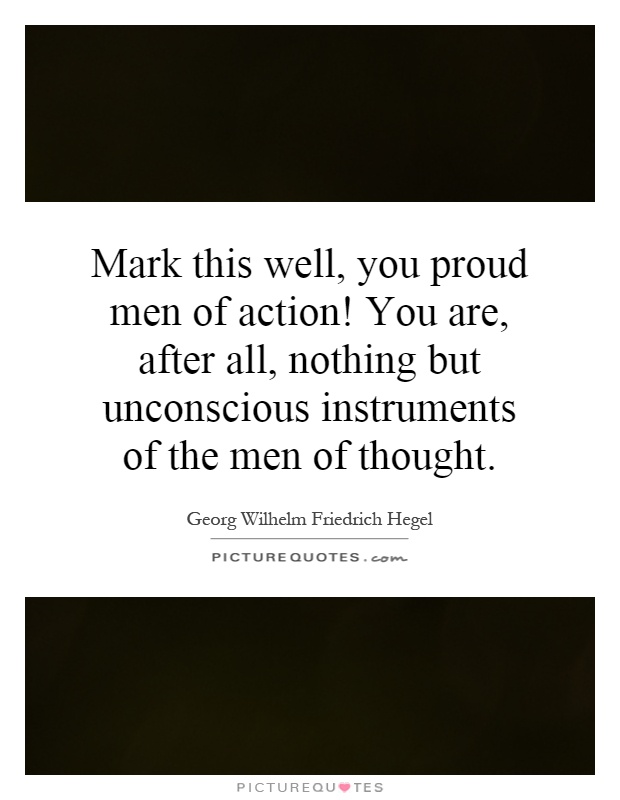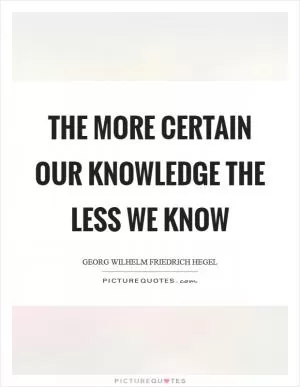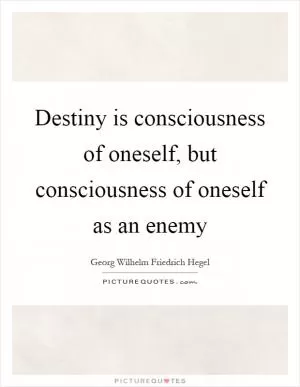Mark this well, you proud men of action! You are, after all, nothing but unconscious instruments of the men of thought

Mark this well, you proud men of action! You are, after all, nothing but unconscious instruments of the men of thought
Georg Wilhelm Friedrich Hegel, a German philosopher of the 19th century, was known for his complex and influential ideas on history, society, and the nature of reality. One of his most famous quotes, "Mark this well, you proud men of action! You are, after all, nothing but unconscious instruments of the men of thought," encapsulates his belief in the power of ideas and the role of intellectuals in shaping the course of history.Hegel believed that history was driven by the clash of ideas and the dialectical process of thesis, antithesis, and synthesis. In this framework, thinkers and philosophers were the ones who shaped the ideas that ultimately influenced the actions of individuals and societies. Hegel saw the thinkers as the true architects of history, while the men of action were merely carrying out the consequences of these ideas without fully understanding their implications.
This quote can be interpreted as a critique of those who believe that their actions alone are what drive change and progress in the world. Hegel is reminding us that behind every action, there is a thought or idea that has influenced it. The men of action may think they are in control, but in reality, they are being guided by the intellectual currents of their time.
Hegel's philosophy emphasizes the importance of intellectual rigor and critical thinking in shaping the world. He believed that it was the duty of intellectuals to engage with ideas, challenge assumptions, and push the boundaries of knowledge. By doing so, they could influence the course of history and bring about positive change in society.












 Friendship Quotes
Friendship Quotes Love Quotes
Love Quotes Life Quotes
Life Quotes Funny Quotes
Funny Quotes Motivational Quotes
Motivational Quotes Inspirational Quotes
Inspirational Quotes